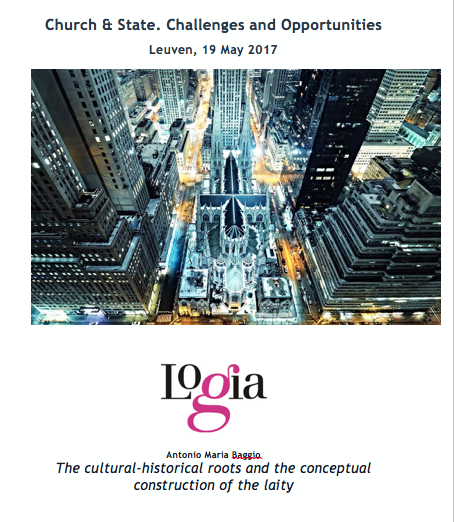
- Questo evento è passato.

Church & State. Challenges and Opportunities
19 Maggio 2017
Various initiatives in recent years have attempted to change the relationship between religions and the government as it is currently enshrined in the Belgian constitution. The initiators tend to espouse liberal views. They have set themselves the goal to introduce the concept of secularism to the constitution and from the year 2000 onwards they have put forward several legislative proposals to revise the constitution in this way. At the start of this year, the matter went before parliament for discussion. The reformers have achieved that the parliamentary committee on constitutional reform will create a report on the values of our state. They are currently consulting with experts for advice.
The Belgian government and the people of Belgium recognise, in their constitution, the variety of belief systems in our country as well as the importance of those values to society and to individuals. It would appear that our current legislation on the matter is already very respectful of the plurality of modern society. And it also already recognises, quite appropriately, the positive contributions and meaningfulness of religions and belief systems for the whole of society. Individual and societal development also have a religious/philosophical dimension.
However, the equilibrium is under pressure. Incorporating the concept of secularism into the Belgian constitution, as is currently being proposed and investigated, poses a risk to this historical balancing act. What the instigators of secularism really want is a strict separation (and possibly a ban) of religion from the res publica. In other words, religion is to be exclusively a private matter and wherever any form of governmental authority is involved, every type of religious expression must be shunned. It is rather clear that this is anathema to the convictions currently underpinning the Belgian constitution, and yet this seems to be the ultimate goal. In adopting the concept of secularism, the authorities would be sending a signal that belief and value systems are no longer relevant to the populace and that the state itself wants nothing to do with them. We believe this erodes the ideal of a state serving the people.
There is another indication that the reformers true intent is to remove religion from public life entirely. The concept of secularism would become a fundamental principle underpinning constitutional freedoms and become the benchmark for future legislation. It hardly needs explaining that such a regulatory change will have far-reaching consequences.
Given our own convictions that value systems are crucially important to ensure a comprehensive approach to every person by the state, we cannot remain on the side-lines while this attempted reform plays out. We have one major concern: how can we prevent that this one, supposedly neutral, principle of secularism will come to dominate the constitution? Supposing the concept of secularism is enshrined into the constitution, a particular value system would share its name with a constitutional principle. There would be the secular value system on the one hand, and secularism as a fundamental constitutional principle on the other hand. In the Belgian context, this is unacceptable.
Beyond that main concern, this seminar also aims to explore how we can contribute to a pluralistic society – a reality already – in which dialogue and respect can flourish. Our society is inexorably becoming more diverse. We want to actively commit to a pluralistic society in which that diversity is allowed to be visible and functional. Contributing to a dialogue and respect for belief systems is a part of that.

